 This World Cup coverage is made possible through the generous support of Marty and Kathy Hall and the A Hall Mark of Excellence Award. To learn more about A Hall Mark of Excellence Award or to learn how you can support FasterSkier’s coverage please contact info@fasterskier.com.
This World Cup coverage is made possible through the generous support of Marty and Kathy Hall and the A Hall Mark of Excellence Award. To learn more about A Hall Mark of Excellence Award or to learn how you can support FasterSkier’s coverage please contact info@fasterskier.com.
Aerial views of Ruka, Finland showed a venue coated in thick rime, a visual representation of the temperatures and conditions on the course. At nearly 66 degrees North, Ruka currently sees just four and a half hours of daylight. Despite the women’s race happening at 1:30PM local time, shadows were long, the course was lit with supplemental beams, and little warmth could be absorbed from the trickle of fading sunlight that did find its way through the trees.
Before the women’s 10-kilometer individual start classic event kicked off, FIS spoke with technical delegate Pokikvar Uros of Slovenia to discuss the temperatures relative to the threshold which would delay or cancel the competition.
“We measure the temperature at the coldest point on the course, which happened to be down by the lake,” Uros explained.
In the morning, he said this temperature was -18.6 C, while temperatures in the stadium hovered closer to -14.
“If the temperature is below -20C, the jury must decide whether to postpone or cancel the competition.”
Ultimately, this did not impede the competition from taking place, but the temperatures were nonetheless apparent in the athletes’ appearance. They warmed up in hooded puffy coats and raced with face tape, helping minimize the surface area of exposed skin.
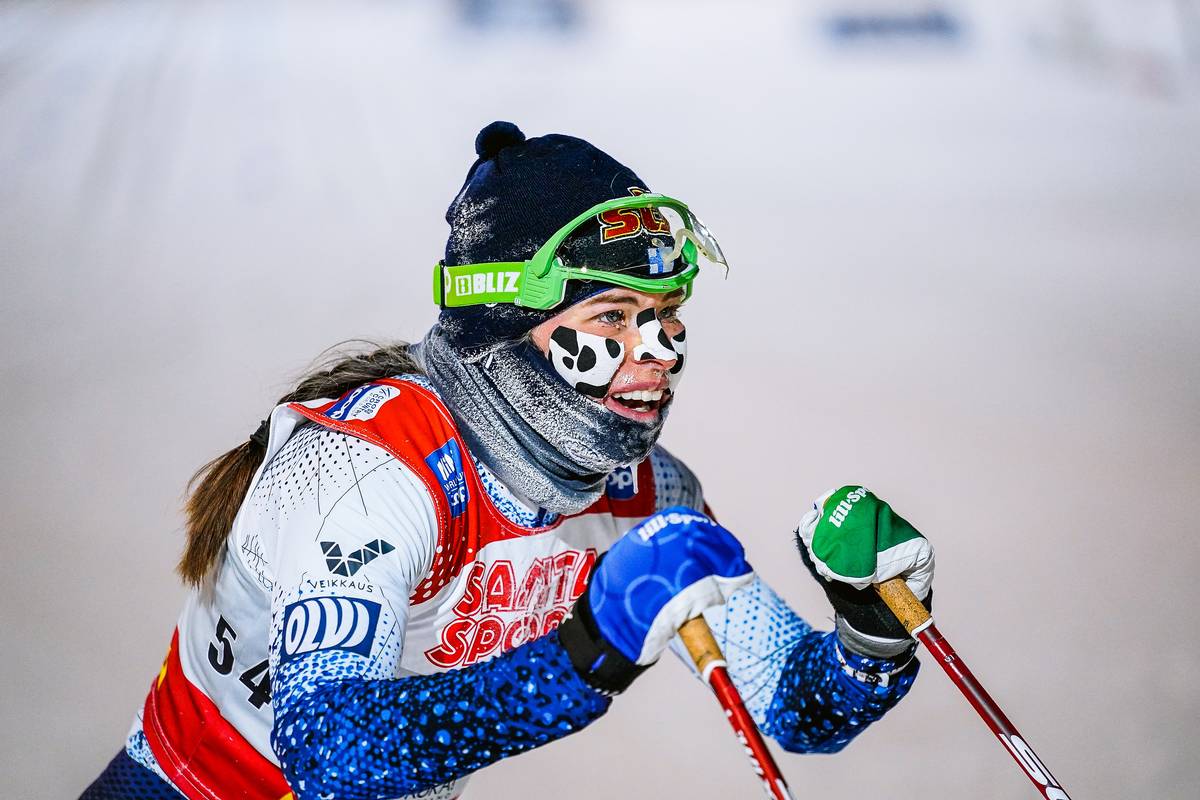
As we begin a new season, it’s natural to question whether narratives of seasons past will continue onward. Would this race report mirror that of last year, where Norway’s Therese Johaug won the individual start classic by a comfortable margin, her metronomic tempo and refined technique carrying her around the course seemingly unmatched?
Since 2018, when she returned from an 18-month ban following an anti-doping violation, this repetitive storyline has made race reporting both simple and boring on many occasions. If Johaug is in the race, the result seemed almost pre-written. However, this has, perhaps, made the occasions where women have interrupted the dominance even more exciting to witness.
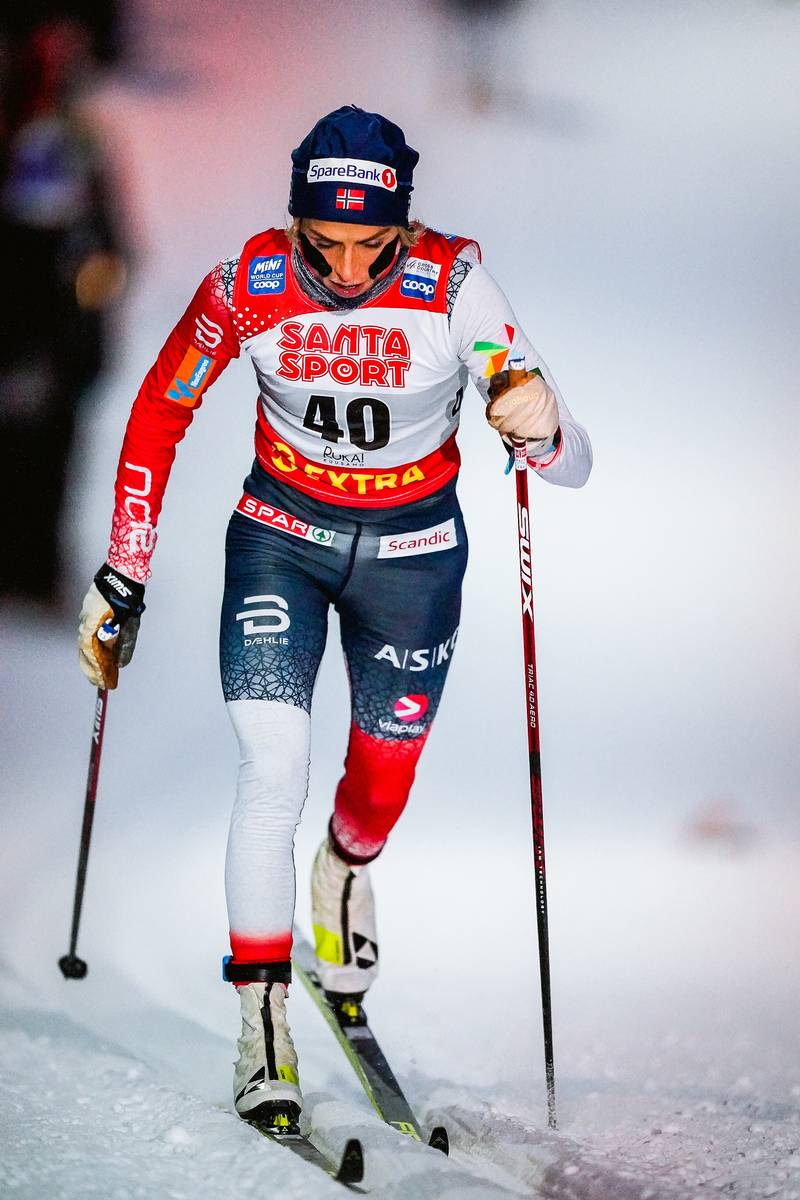
Among the women who seemed to be prime candidates for a plot twist are Johaug’s teammates, Heidi Weng, who finished second to Johaug in the FIS races in Beitostølen last weekend, and relative dark horse, Ingvild Flugstad Østberg, who made a long-awaited return to the World Cup in Ruka after an extended absence to address personal health issues. In seasons prior to her departure, Østberg was a podium regular and the winner of the 2019 Tour de Ski.
However, Østberg last raced on the World Cup in March, 2020. She began that season late after failing to meet national team health criteria; it was speculated that these criteria included body weight and bone density. In March, after jumping off a three-foot concrete step, she sustained a stress fracture in her heel, which ended her season. She did not race in the 2020-21 season.
Another contender was Sweden’s Frida Karlsson, who first turned the tables on Johaug on the Norwegian’s home course in the Holmenkollen 30k in March, 2020. The 22-year old won the FIS distance openers in Gällivare, Sweden, and showed her range yesterday with a 6th place finish in the classic sprint.
As splits from the seeded group began to roll in, this was the narrative that became the one to follow. Karlsson started in bib 52, six minutes behind Johaug in bib 40, receiving information from coaches on the sidelines about her time relative to Johaug throughout the day. Johaug could set the bar as high as she was able, but Karlsson would be the one with the information on the exact time needed to overtake her.
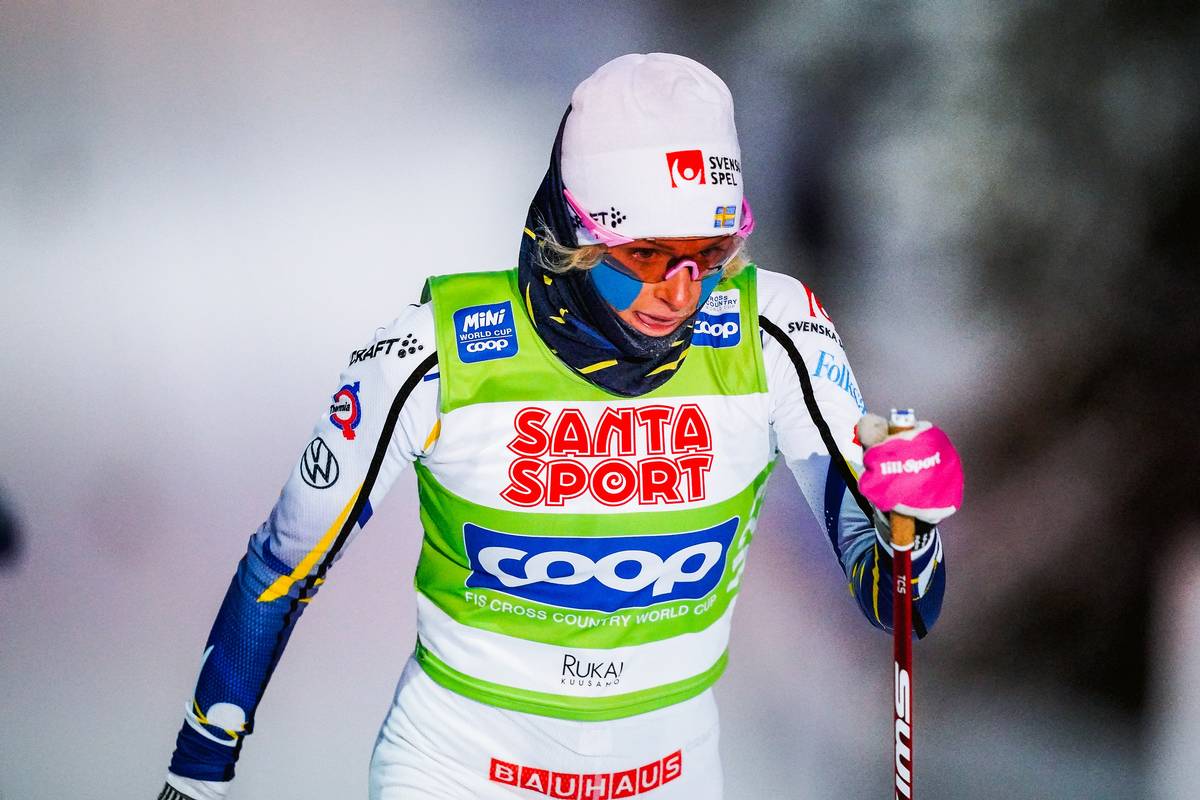
As expected, Johaug did set the bar high, beating the times set by previous women by more than ten seconds at each checkpoint.
But, as Karlsson chased the imaginary rabbit past the 3.1k mark, she had 4.1 seconds on the Norwegian. This time decreased to 2.1 seconds at 5k. As she kicked and poled uphill past a section of spectators, the chant of “Free-Da! Free-Da! Free-Da!” could be heard, encouraging her onward as she powered toward the finish line.

By 8.1k, Karlsson had rebuilt her time gap to 5.6 seconds, and she fired on all cylinders over the final 2k over the course.
Wobbly legged, Karlsson collapsed after her final push over the finish line, her chest rising and falling as her lungs reoxygenated her blood. Sitting up to view her final standing, her arms rose into the air and the lungs expelled a celebratory shout. She had beaten Johaug by 13.7 seconds.
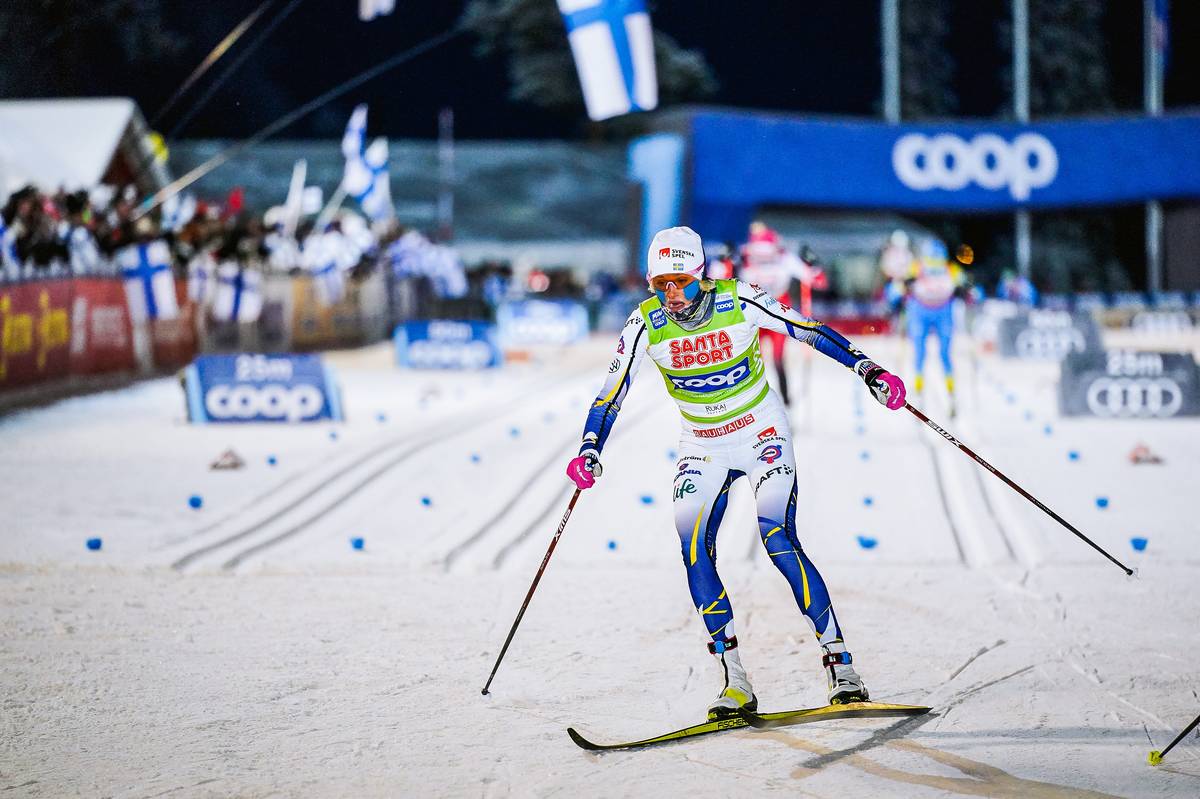

Let that sink in for a second: Johaug did not win the first distance race of the year.
“I’m super happy,” a smiling Karlsson told FIS from the leader’s chair after the race. “Today I felt really strong. I was having the control from the start, and I think it was really fun to ski today.”
Commenting on how it feels to be at the top this early in the year, Karlsson continued, “This is an exciting season because of the Olympics, and I feel like I am having really good control over the situation.”
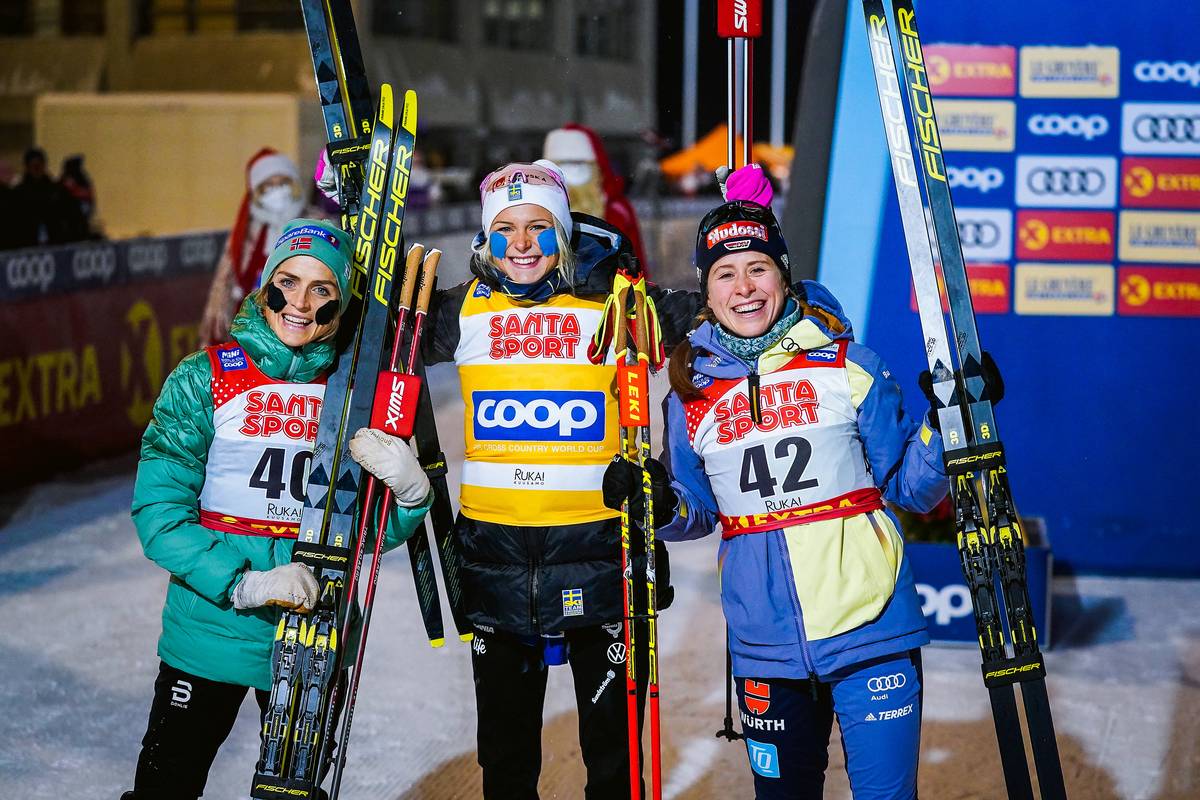
Rounding out the podium, Germany’s Katharina Hennig was third (+15.2). Hennig moved into this position at the 5k mark, skiing a very strong second lap to decrease her time gap to Johaug from roughly ten seconds at her first lap through the stadium, to just 1.5 seconds at the finish.

This is Hennig’s third World Cup podium, each of which has been achieved in 10k classic events. Her other two podiums, a second and third, have both been in Val di Fiemme, ITA, during the Tour de Ski.
Ebba Anderson (SWE) was fourth today in Ruka (+31.8), with Krista Pärmäkoski (FIN) just behind in fifth (+35.1). The aforementioned Weng finished 10th (+55.7), while Østberg was outside the points in 33rd (+1:52.0).
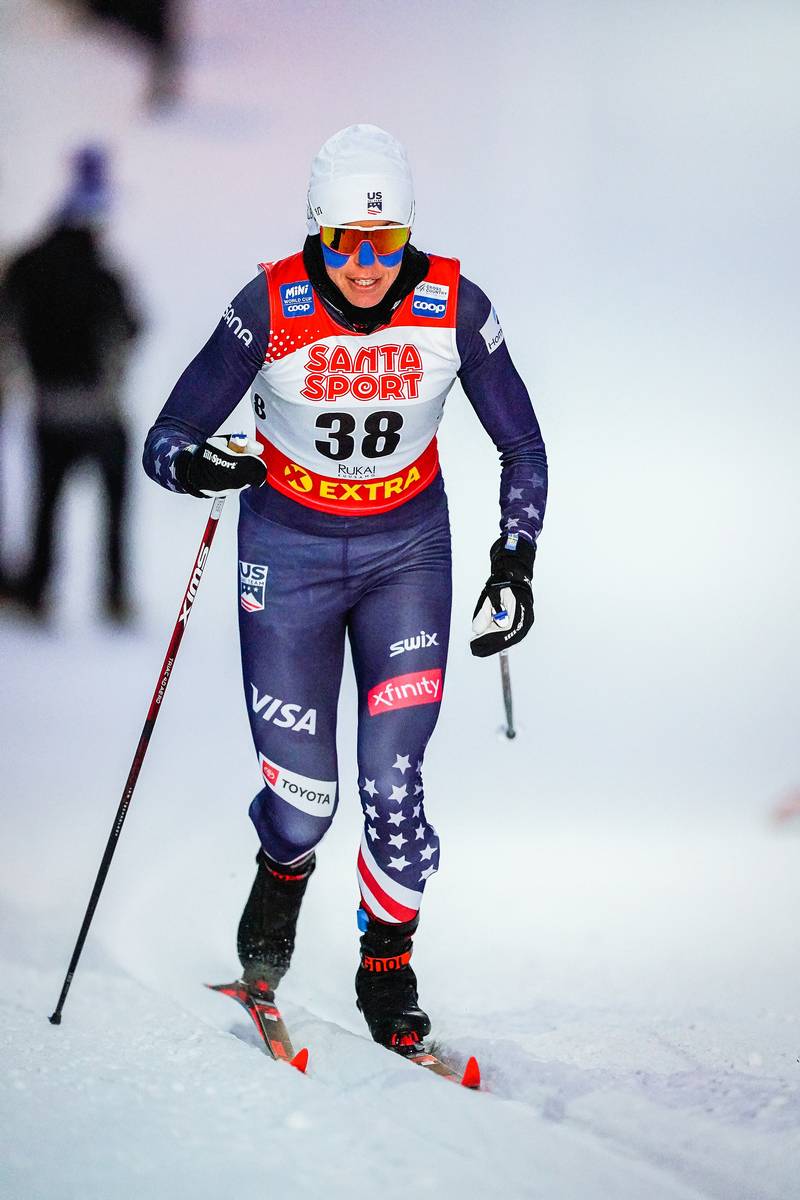
On the American side, Rosie Brennan was the woman of the day, skiing back-to-back strong and steady laps to finish 6th (+38.6).
“We had a frigid and dark 10k today in Ruka,” Brennan wrote in a post-race email to multiple news sources. “We had a solid morning of worrying about what layers to wear and how dark it’s going to be. All worked out in the end and I stayed warm out there and only had a few moments where it was truly too dark to see where I was going. I had really good skis and tried to just dig in and see where my body was at. I didn’t quite have the extra push I needed in the end, but stayed consistent and strong to hold on for a good result. I am really happy to be in the mix and to have a strong group to go chasing with tomorrow. I feel good about where my body is at and where I need to go from here.”
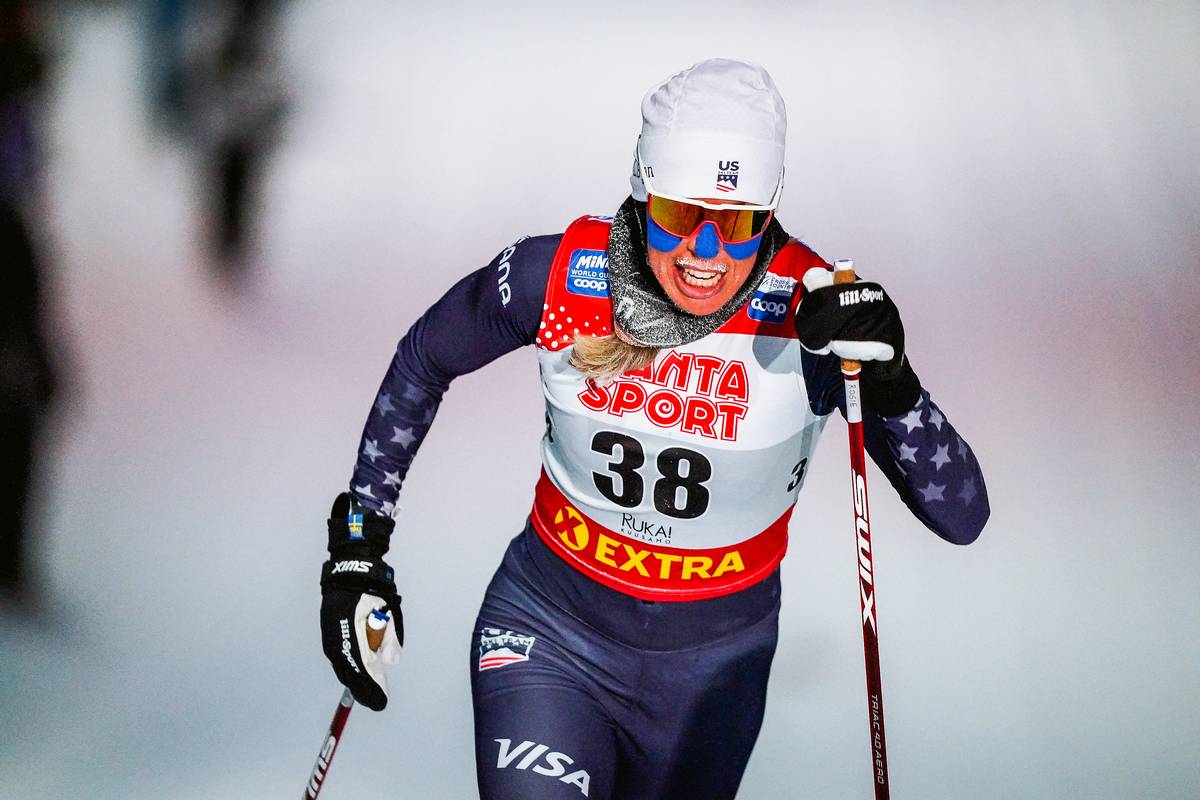
As the 10k classic is one of the cross-country events in the Olympic schedule, Brennan’s Top-8 result meets the objective criteria for team selection, potentially punching her ticket to Beijing. Head coach Matt Whitcomb commended Brennan for her consistency on the day, recognizing the result as a positive indicator despite a focus on process on the day and longer-term goals of the season ahead.
This audio includes comments on both the men’s and women’s distance classic races in Ruka.
Jessie Diggins was next for the American team, finishing 18th (+1:13.7). In a press conference earlier this week, Diggins explained that she has been working with her coaches on a peaking plan for the Olympics. In general, Diggins, who was last year’s overall World Cup winner, builds into the season, with her best results coming much later than Period 1. She indicated that fans can expect the same this season, as she’ll use the Tour de Ski as a fitness booster, followed by an altitude camp to prepare for her goal races during the Olympics.
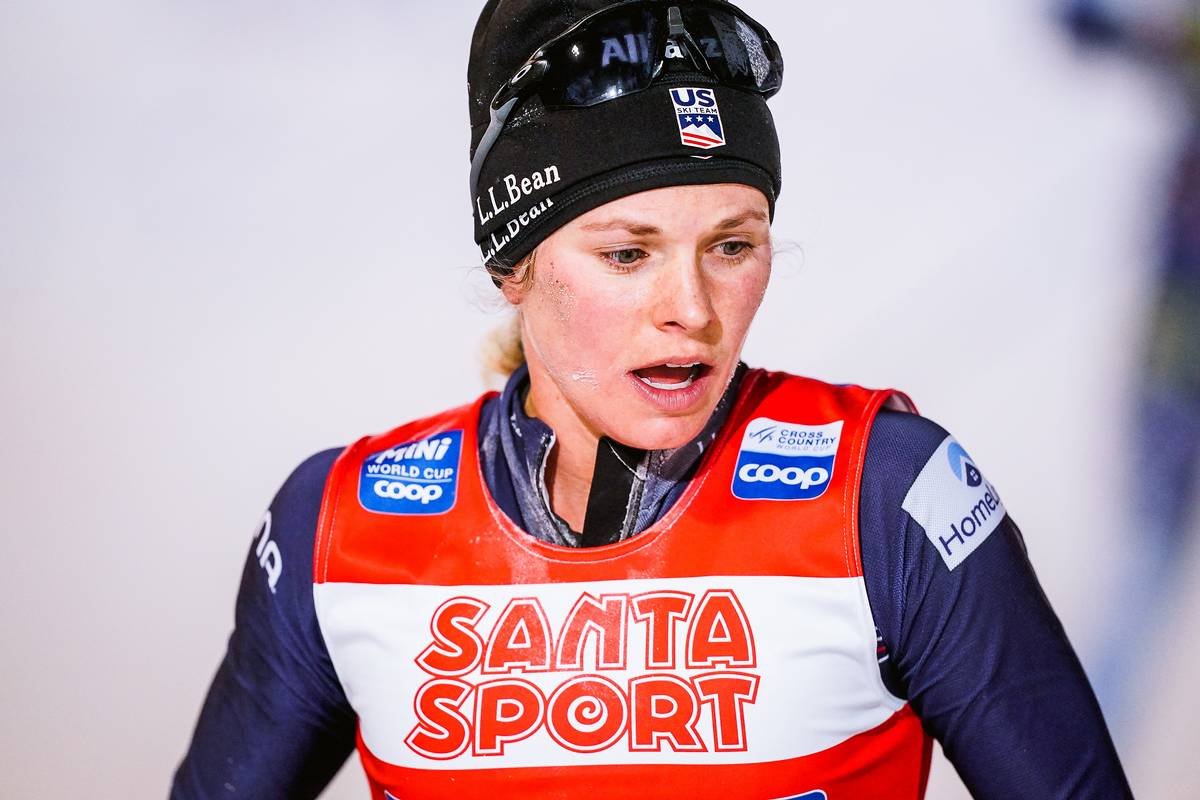
Outside the Top-30, Katharine Ogden finished 38th (+1:58.3), followed by Hailey Swirbul in 41st (+2:06.3), and Caitlin Patterson in 43rd (+2:16.0). Novie McCabe was 53rd in Ruka (+2:51.6), while Julia Kern took 55th (+2:54.2). Sophia Laukli rounded out the American squad in 61st (+3:21.1).
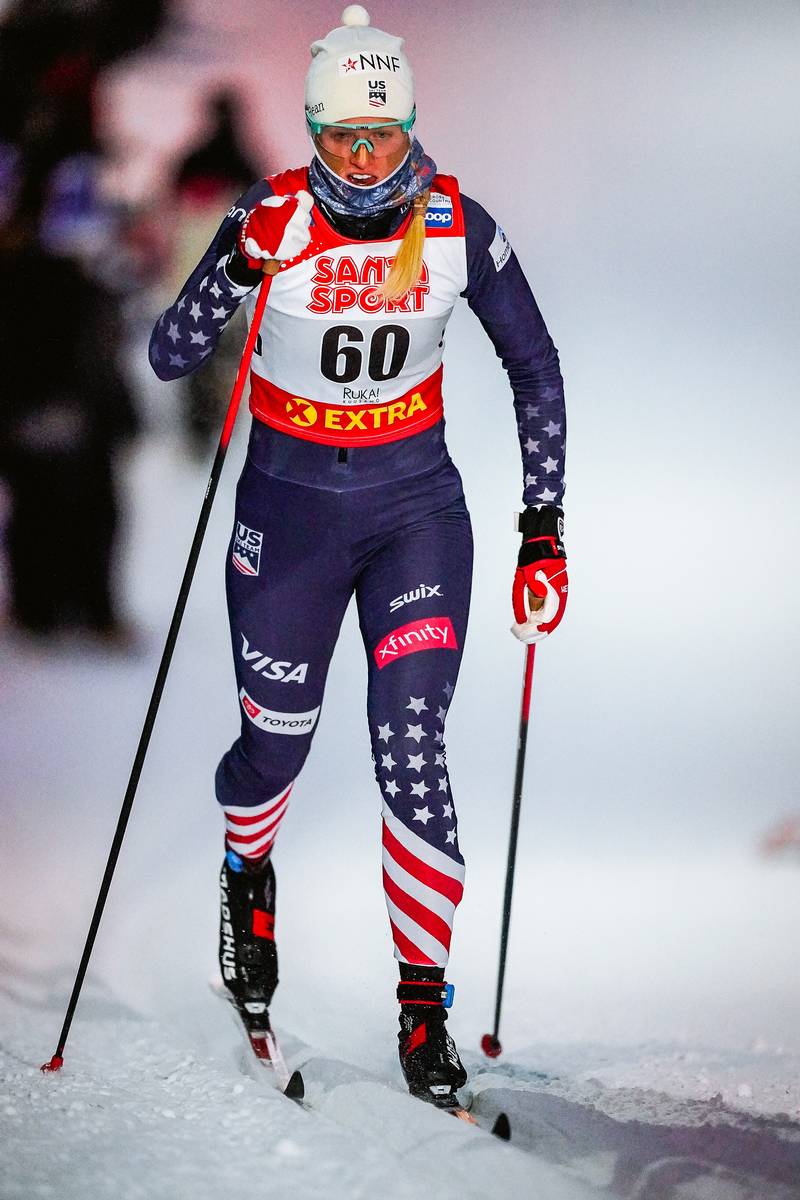
Racing for Nordiq Canada, Katharine Stewart-Jones was 35th (+1:54.0), followed by Cendrine Browne in 49th (+2:40.6).
Rachel Perkins
Rachel is an endurance sport enthusiast based in the Roaring Fork Valley of Colorado. You can find her cruising around on skinny skis, running in the mountains with her pup, or chasing her toddler (born Oct. 2018). Instagram: @bachrunner4646



